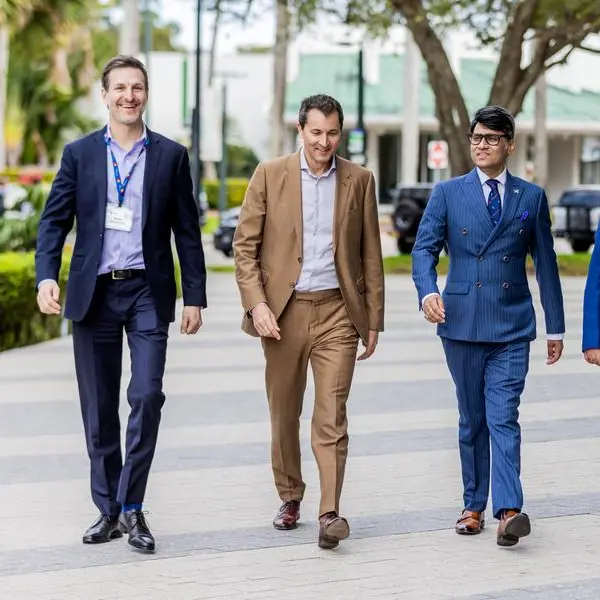
The Somalia National Bureau of Statistics (SNBS) of the Federal Republic of Somalia has signed a historic formal agreement with the Food and Agriculture Organization (FAO) of the United Nations to transfer the Food Security&Nutrition Analysis Unit (FSNAU) and the Somalia Water&Land Information Management (SWALIM) Programs from FAO to the SNBS. The transfer will happen through a three-phased approach that is expected to conclude within three years.
Through the agreement, FAO will gradually transfer data and analysis capability relating to food security, nutrition, markets, livestock, livelihoods and natural resources to SNBS. The SNBS is mandated by the Statistics Act in the collection, management and reporting of data in the country. In close collaboration with SNBS, FAO will provide technical assistance and institutional capacity development support, share FSNAU, SWALIM existing datasets and periodic updates and develop with the SNBS independent platforms for hosting information, publications and datasets.
The Agreement was signed between the Federal Government of Somalia and FAO at an event held at the Airport Hotel in Mogadishu on Monday. In attendance was the Federal Minister for Agriculture and Irrigation, Hon. Mr. Said Hussein Iid, the Federal Minister for Planning, Investment and Economic Development, Hon. Minister Gamal Mohamed Hassan, United Nations Resident Coordinator Mr. Adam Abdelmoula, FAO Representative in Somalia, Mr Etienne Peterschmitt, the Director General of Somalia National Bureau of Statistics, Mr Sharmake Farah, and dignitaries from Federal Government line ministries, the United Nations and resource partners.
Building on a legacy of high quality and timely data
FSNAU and SWALIM were established in 1994 and 2001, respectively, with various crises highlighting the need for independent and credible early warning information and analysis in the absence of adequate government institutional capacity. FSNAU and SWALIM represent a unique effort in support of reliable, innovative and quality data production and analysis, with continuous improvements made to their capacity and functionality over the years in tandem with globally recognized standards and methods.
‘We look forward to continuing and improving on the legacy of producing high quality and timely data in a collaborative manner. With our independent board, we are committed to the core values of accountability, transparency and collaboration with the other government institutions and partners,” said Mr Sharmake Farah, Director General of Somalia National Bureau of Statistics.
Strengthening governance and contributing to the Somalia National Development Plan
Both SNBS and FAO have a shared interest in strengthening their collaboration with the aim of transferring and improving the technical capacities and management of the FSNAU and SWALIM and their relative systems to SNBS. Through a three-phase transition process, SNBS plans to increase its capacity to produce and disseminate quality statistics related to food security, nutrition, environmental and natural resources.
To achieve this, SWALIM and FSNAU technical staff will focus on building the technical capacity of SNBS staff. SNBS will undertake a series of ‘cross pollination’ exercises to learn from other experiences within and outside of Somalia, take part in seasonal assessments and receive on the job training and collaborate and coordinate with other government line ministries at Federal and Member State level. Under the agreement, IT equipment and facilities will also be acquired for the establishment of platforms to host and disseminate national data sets collected around the country, including information and analyses.
“This agreement is a sign of the Federal government’s commitment to take over responsibilities for the collection, analysis, management and reporting of data collected across Somalia. Years in the making, this process will ensure that Somalia has the tools it needs to navigate the challenges of the future - including protracted humanitarian crises and the perennial issue of climate change - with decision makers being informed by the best available information. This information will also inform the formulation of public policy in order to take timely and appropriate action to safeguard the lives and livelihoods of Somalia’s most vulnerable families and communities,” said Mr Etienne Peterschmitt, FAO Representative in Somalia.
Since their establishment, FSNAU and SWALIM programmes have been producing and disseminating timely and relevant information and analysis for decision-making by Government, UN agencies, donors, NGOs and international organizations. These include Somalia’s Humanitarian Response Plans and the National Development Plans.
FSNAU and SWALIM programmes are expected to continue to inform effective policymaking, planning and monitoring for economic growth, poverty reduction at the government level, and contribute towards the attainment of such development targets as the National Development Plan – 9, and the Sustainable Development Goals.
Distributed by APO Group on behalf of Food and Agriculture Organization (FAO).
© Press Release 2021
Disclaimer: The contents of this press release was provided from an external third party provider. This website is not responsible for, and does not control, such external content. This content is provided on an “as is” and “as available” basis and has not been edited in any way. Neither this website nor our affiliates guarantee the accuracy of or endorse the views or opinions expressed in this press release.
The press release is provided for informational purposes only. The content does not provide tax, legal or investment advice or opinion regarding the suitability, value or profitability of any particular security, portfolio or investment strategy. Neither this website nor our affiliates shall be liable for any errors or inaccuracies in the content, or for any actions taken by you in reliance thereon. You expressly agree that your use of the information within this article is at your sole risk.
To the fullest extent permitted by applicable law, this website, its parent company, its subsidiaries, its affiliates and the respective shareholders, directors, officers, employees, agents, advertisers, content providers and licensors will not be liable (jointly or severally) to you for any direct, indirect, consequential, special, incidental, punitive or exemplary damages, including without limitation, lost profits, lost savings and lost revenues, whether in negligence, tort, contract or any other theory of liability, even if the parties have been advised of the possibility or could have foreseen any such damages.



















